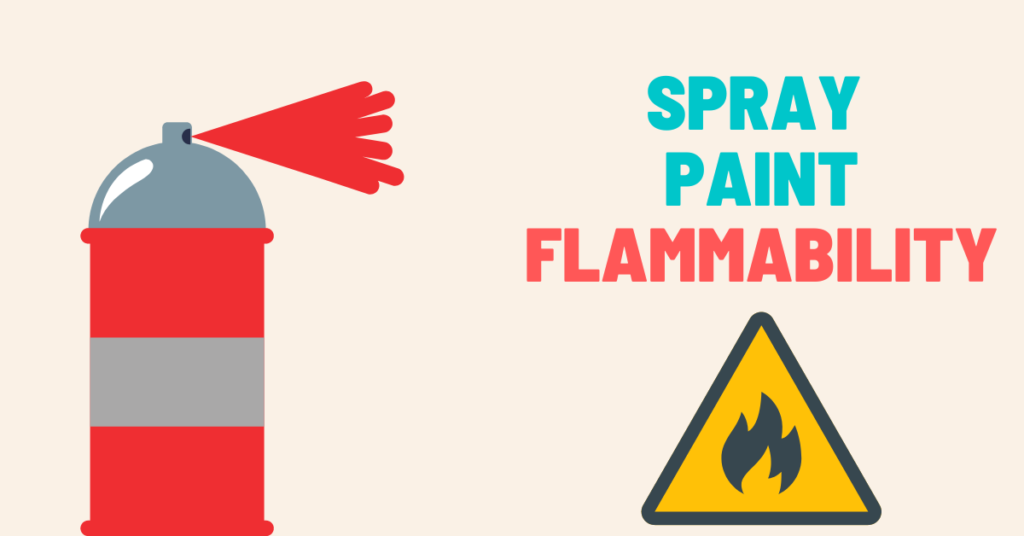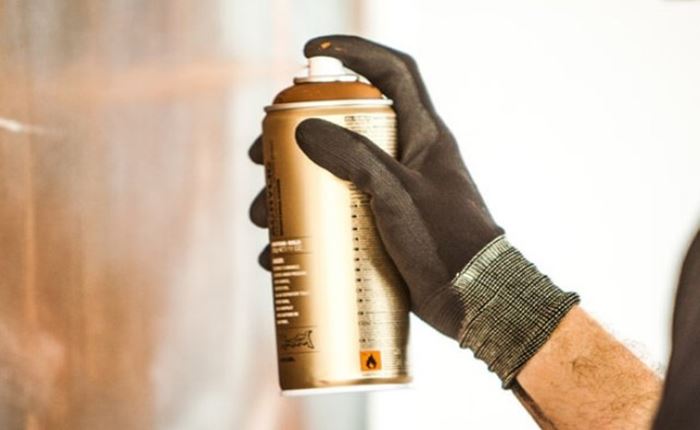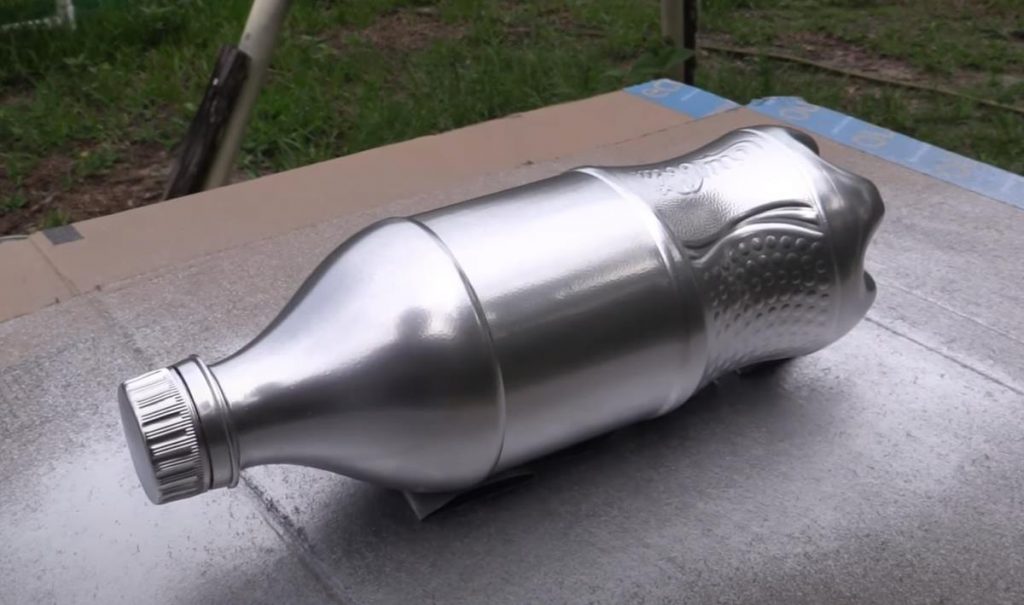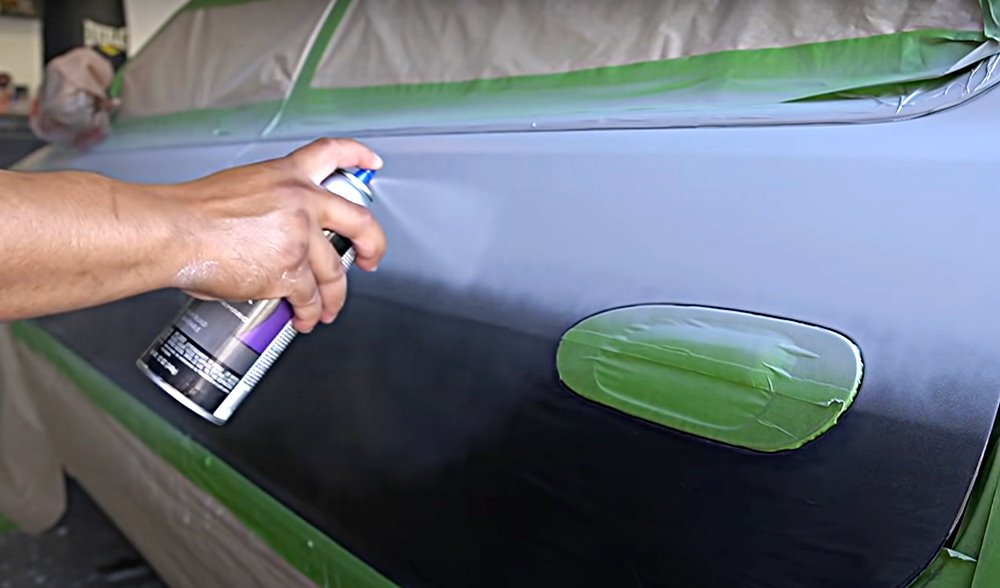I’ve always been curious is spray paint flammable? I used to think it was, but after doing some research and talking with my friends who are chemists, I learned that is not the case.
If you’re like me and live in a place where is very cold outside during the winter months, then this article is for you. We will talk about what causes fires in general and how they affect things around us like cars or homes – as well as your safety when using spray paint indoors.

Flammability of Spray Paint
Flammability is the ability of a substance to catch fire or burn. Spray paint is flammable because it contains solvents that are highly volatile and evaporate quickly. When these solvents come into contact with a spark or a flame, they can ignite and cause a fire. The flammability of spray paint depends on several factors, including the type of paint, the solvents used, and the concentration of the solvents. Generally, spray paint is considered highly flammable and should be handled with care.
Safety Precautions When Using Spray Paint
Using spray paint safely is essential to prevent accidents and injuries. Here are some safety precautions that should be taken when using spray paint:
- Always use spray paint in a well-ventilated area to prevent the buildup of flammable vapors.
- Keep the spray paint can away from heat sources, sparks, and flames.
- Do not smoke while using spray paint or in the area where it is being used.
- Wear protective gear such as goggles, a respirator, and gloves to protect your eyes, lungs, and skin.
- Read the label and follow the manufacturer’s instructions for use.
Risks of Using Flammable Spray Paint
Using flammable spray paint can be risky, and there are several dangers associated with it. One of the most significant risks is the potential for fire. Flammable spray paint can ignite if it comes into contact with a spark or a flame, and the fire can spread rapidly, causing serious damage and injuries.
Another risk is exposure to harmful fumes that can cause respiratory problems, headaches, dizziness, and nausea. Using spray paint in a confined space can be particularly dangerous, as the fumes can accumulate and cause suffocation.
Alternative to Flammable Spray Paint
If you are concerned about the flammability of spray paint, there are alternatives available. One of the most popular alternatives is water-based spray paint, which is less flammable and produces fewer harmful fumes. Water-based spray paint is also easier to clean up and can be used on a variety of surfaces.
Is spray paint flammable when dry?
Spray paint is a type of chemical that is known as a solvent. In other words, when it is in its liquid form, the main purpose is to dissolve or thin out another material – such as plastic or wood. With spray paints, there’s normally polyurethane which is what causes the shiny finish on most products you see around town. However, when is in its dry form it doesn’t pose any fire hazards.
The main reason is that the solvent is gone and what you are left with is a solid material that isn’t flammable at all. When spray paint dries out or evaporates – which can happen very quickly depending on where you live – there is no risk of any type of fire.
In fact, if you left a can of paint open in your garage and it started to evaporate, the fumes would be more dangerous than the actual flames. So is spray paint flammable? The answer is no, it is not. But always use caution when using any type of chemical and read the label to make sure you are aware of any risks.
How long is spray paint flammable?
The truth is, the answer to this question really depends on the type of spray paint that you are using. There are two types of solvents that are used in most paints – water and oil. Water-based paints usually have a very short life span once they’re exposed to air. In fact, if you left the can open overnight, it would be completely dry the next morning.
If you are using oil-based paints or lacquers then there is a much higher chance that they will combust while in their liquid form – before they evaporate.
Is spray paint a flammable liquid?
Spray paint is a flammable liquid when it’s in its dry form. However, if you take away the solvent and leave behind only the polyurethane – which is what gives spray paints their shiny finish – then there isn’t any risk for fires or flames once they have dried completely.
Is emulsion paint flammable?
The short answer is no, emulsion paint is not flammable. Emulsion paints are water-based and they use a type of solvent that is known as alcohol. This means that the paint will evaporate very quickly and there won’t be any risk of fire or flames. In fact, if you left the can open overnight, the paint would be completely dry by morning.
The only time you have to worry about emulsion paints is when they are in their liquid form. If there is any type of fire or flame nearby, then the alcohol could potentially ignite and cause a bigger problem. But as long as you’re using this type of paint safely and following all the safety precautions then there is no risk.
The bottom line is that spray paint does not pose any fire risks when it has dried – even if you live in a very cold place where the temperatures drop below zero.
Is oil-based paint flammable after it dries?
The answer to this question is no, oil-based paint is not flammable after it dries. However, if you are using an open flame nearby then there is a chance that the fumes could ignite and cause a bigger problem.
But as long as you’re using this type of paint safely and following all the safety precautions then there is no risk. In fact, if you left the can open overnight, the paint would be completely dry by morning.
What Makes Spray Paint Flammable?
The main reason is that the solvent is gone and what you are left with is a solid material that isn’t flammable at all. When spray paint dries out or evaporates – which can happen very quickly depending on where you live – there is no risk of any type of fire.
In fact, if you left a can of paint open in your garage and it started to evaporate, the fumes would be more dangerous than the actual flames.
Is Latex Paint Flammable?
The answer to this question is no, latex paint is not flammable. Latex paints are water-based and they use a type of solvent that is known as alcohol. This means that the paint will evaporate very quickly and there won’t be any risk of fire or flames.
Is Paint Thinner Flammable?
The answer to this question is yes, paint thinner is flammable. In fact, it’s one of the most flammable liquids that you can buy. That’s because it contains a high level of solvents and other chemicals that can easily ignite and cause a fire.
So if you’re using any type of chemical thinner, you need to take all the necessary precautions and make sure that there isn’t anything nearby that could ignite. If there is a fire or flame nearby then it’s very likely for the fumes from paint thinner to combust as well – which can lead to an even bigger danger.
What’s the Difference Between Flammable vs. Combustible?
The main difference between flammable and combustible liquids is that a combustible liquid will continue to burn even after the source of the fire has been removed. And while all flammable liquids can cause fires, not every combustible liquid will ignite when it comes into contact with a flame.
That’s because combustible liquids have to contain their own oxygen source that will continue to feed the fire. For example, you won’t see anything on your outdoor grill catching fire because there is no flammable liquid involved – just some very hot metal and gas.
But if you start using combustible liquids like paint thinner or gasoline then it’s more likely for a fire hazard to occur.
Conclusion
Spray paint contains a variety of chemicals that are combustible depending on their concentration, including butane and acetone. It’s best for safety reasons to avoid spraying any kind of aerosol or solvent indoors; if you must use it inside make sure there is adequate ventilation (a window open). Be careful around alcohol-based paints as they can ignite more easily than other types, like latex paints. If you’re looking for an easier way to coat your project with color try using acrylics instead!


